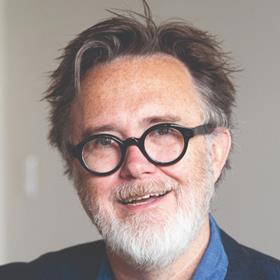Christians have long lamented the liberal attitudes brought about by the sexual revolution, but now secular thinkers are starting to agree. Feminist campaigner Louise Perry joins Christian commentator Rod Dreher to discuss whether ancient biblical wisdom holds the answers to modern maladies
Justin Brierley (JB): Louise, can you tell us how your background has informed your recent book, The Case Against the Sexual Revolution?
Louise Perry (LP): The story I like to tell is that we used to get two copies of The Guardian delivered every day; that’s a useful short-hand for my secular, liberal upbringing.
When I worked in a rape crisis centre, it was a real confrontation with reality. The gap between what I had been taught and what I was experiencing shook my faith in feminist theory.
The premise that I now start with – which is controversial in feminist land but probably less so in the rest of the world – is that men and women are fundamentally different in some very important ways. For instance, men are higher in what psychologists call ‘sociosexuality’ or desire for sexual variety; a drive towards having casual sex.
Post-sexual revolution, there has been a rejection of Christian sexual ethics and an embrace of freedom as the ultimate good. The popular progressive narrative is that you can shake free of these old oppressive norms, inject more freedom into the system and expect people to arrive at more harmonious sexual relationships. I don’t think that’s what we’ve seen. What we have essentially seen is that women have been encouraged to imitate male sexuality. Hook-ups, watching porn, experimenting with fetishes, all these things which suit the interests of people who are more sexually adventurous but don’t, I think, suit the interests of the vast majority of women who are not naturally that way inclined, but are encouraged to see that as aspirational.
The Church needs to quit being so afraid of The Guardian and actually stand up unapologetically for the wisdom of scripture
We now have a vacuum when it comes to sexual guidance. The dominant message is: prioritise your own freedom and pleasure. As long as you consent, and the other person consents, and you are all adults, it’s all fine. I think that’s a completely inadequate ethical system. Removing the social guardrails was dangerous.
JB: Are we due for a bit of a pushback?
LP: I do think that, at least in this country, feminism is unmooring from the Left. It is much more instructive to use the word ‘feminist’ in a very loose sense, just to mean any sort of campaign on behalf of women. And if you look at it in those terms, it reveals a much richer feminist history. I would argue temperance was feminist – it was an anti-domestic violence movement dressed up as an anti-alcohol movement. The first female MP in this country was Conservative. The Conservative Party has often enacted feminist legislation. There is also a tradition of pro-life feminism which has been largely forgotten.
So, I think it’s perfectly plausible that mainstream feminism is moving rightwards, and I think that is partly to do with the internet. It has suddenly become possible for women – who previously could not really participate in public life because they had children – to participate. Oscar Wilde said: “The problem with socialism is that it takes up too many evenings.” And feminism has always had the same problem; you have to go to rallies and political meetings. The internet comes with a huge amount of evil, but there are upsides too. And one of them is that mothers can now participate in public life on their smartphones.
Conversation partners

Louise Perry is a journalist and secular, feminist campaigner against sexual violence. She is the author of The Case Against the Sexual Revolution: A new guide to sex in the 21st century (Polity), where she explains why liberal hook-up culture is bad for women.

Rod Dreher is senior editor of The American Conservative, a public commentator and the author of bestselling books including The Benedict Option: A strategy for Christians in a post-Christian nation (Sentinel).
Watch the conversation in full at thebigconversation.show
JB: Speaking of the evils of the internet, how much has pornography shaped sexual relationships in the present culture?
LP: Enormously. The average man in Britain watches 70 minutes of porn a week, and two per cent of men watch seven hours of porn a week. How can that not be having an effect, given it isn’t just beamed into our eyeballs, it’s also reinforced by orgasm? You have this particularly aggressive dopamine feedback loop which, of course, the porn industry intends [to function] that way.
Rod Dreher (RH): We now have men in their early 20s, who are impotent. Has that ever happened in human history? Young men can’t have normal relationships with women because their brains have been rewired by constant exposure to pornography.
JB: Birth rates in the West are declining. Some have pointed out that more children are being born within Muslim families so, if the rates continue, Islam may come to predominate purely on the basis of reproduction. Rod, in your book The Benedict Option, you say Christians need strong communities which manifest a spiritual life. Is part of that encouraging them to be fruitful and multiply as well?
RD: Absolutely. Contraception was considered taboo for Christians up until the 1930s. We need to establish communities of faith which promote the idea that family is good and children are a primary good.
When I converted to Catholicism at the age of 26, I was living in Washington DC. I knew that, for me, the greatest dying to self that I had to do was dying to sexual activity. I knew I had to be chaste until I married. That was so difficult because I couldn’t find any priest who wanted to help me walk the straight and narrow. They were embarrassed by the Church’s teaching. Four years later, when I did get married, I found I had grown so much spiritually and emotionally through my chastity, but I had some bitterness that I had to do it almost entirely on my own.
we now have a vacuum when it comes to sexual guidance
The Church needs to have the awkward conversations and not be apologetic for what it teaches. Sex is a good thing, but it has to be channelled in a way that is life-giving and holy. The Church knows how to do this, it just needs to quit being so afraid of The Guardian and actually stand up unapologetically for the wisdom of scripture.
JB: Louise, that idea of not having a sexual relationship before you marry seems primitive to many secular people today. Is there anything you can do to help push back on that narrative?
LP: There is an episode of Sex and the City when one of the characters decides not to have sex with a boyfriend, just as an experiment. When it gets to the night before their wedding, she discovers he’s impotent, and it ends up destroying the marriage. This is the nightmare scenario presented to people for whom the idea of not having premarital sex is bizarrely old-fashioned.
But I fundamentally disagree with the idea that sex is a skill one ought to practise on people. I don’t think it’s something that you do to another person, it’s something you do with another person. There’s a common article that you’ll see in women’s mags – ‘Sex tips from sex workers’ – because there’s an assumption that having lots of sex and lots of partners puts you in the best possible position to advise on technique. This is the view that sex is basically like playing tennis, but no one actually lives as if this is true. Sex is different from playing tennis. People care deeply if their partners are unfaithful; they feel a joy and distress in relation to their sexual experiences that they don’t feel in any other part of life.
JB: What do you think the future holds on this?
LP: I think a fault line is emerging between people who want to embrace medical technology and people who are cautious. Things like the pill, which I don’t think we’ve ever really come to terms with, or sex reassignment surgery, which is a really radical example of trying to remove the biological hard limits we have.
If we enter a post-antibiotic world – which is a very serious threat – that will have transformative social effects. There will be no more sex parties and prostitution in a world where we have antibiotic-resistant gonorrhoea. In such circumstances, it’s plausible that we might return to some of the most durable ideologies available to us.
JB: Do you think that might ultimately push people back towards God?
LP: I don’t think sociologists are settled on the cause of de-Christianisation. I’ve always thought, as a mother, the drop in mortality must be part of it. People must have been desperate to believe in heaven when they could expect half of all children to die before adulthood.
RD: I recently had a conversation with a 27-year-old Anglican ordinate, who told me that new atheism is dead in his generation. He previously worked in advertising in London and said he was the only Christian in his office, but there were no atheists. Everybody else was involved, to one degree or another, with the occult and there were even two open Satanists. As a Christian, that’s horrifying to hear, but he said he actually found some hope in it. His generation are desperate to connect with transcendence. He thinks – and I agree – that they’ve taken a wrong turn, but the fact that they are not satisfied with materialism and consumerism is a sign of potential re-birth.







































No comments yet